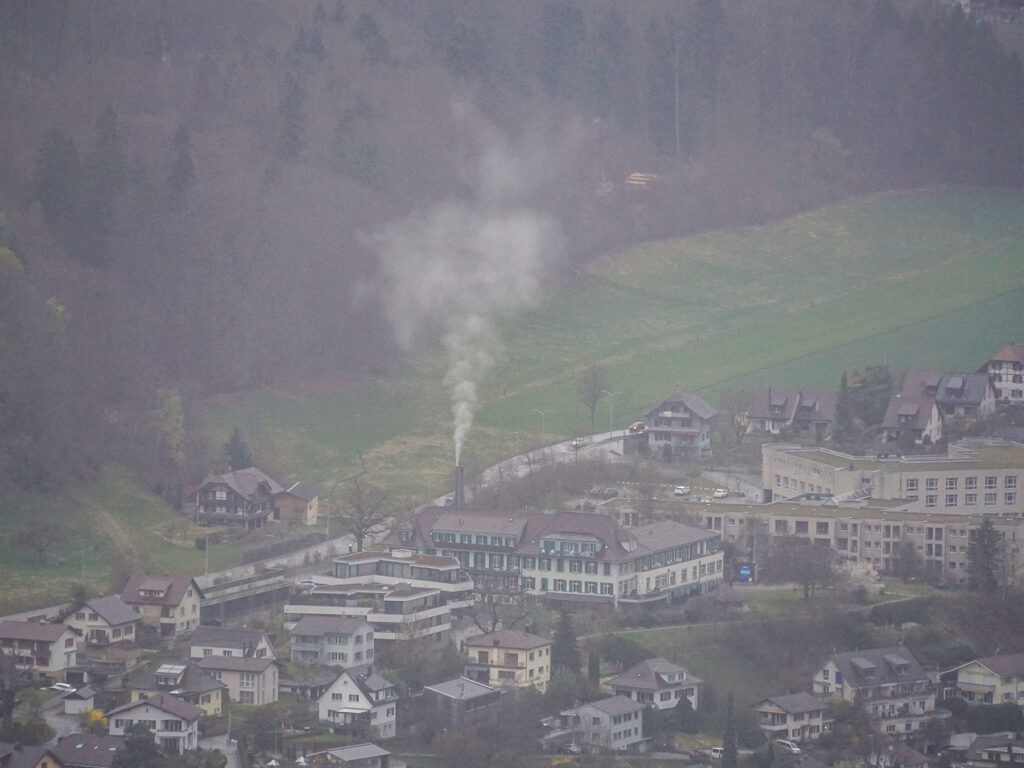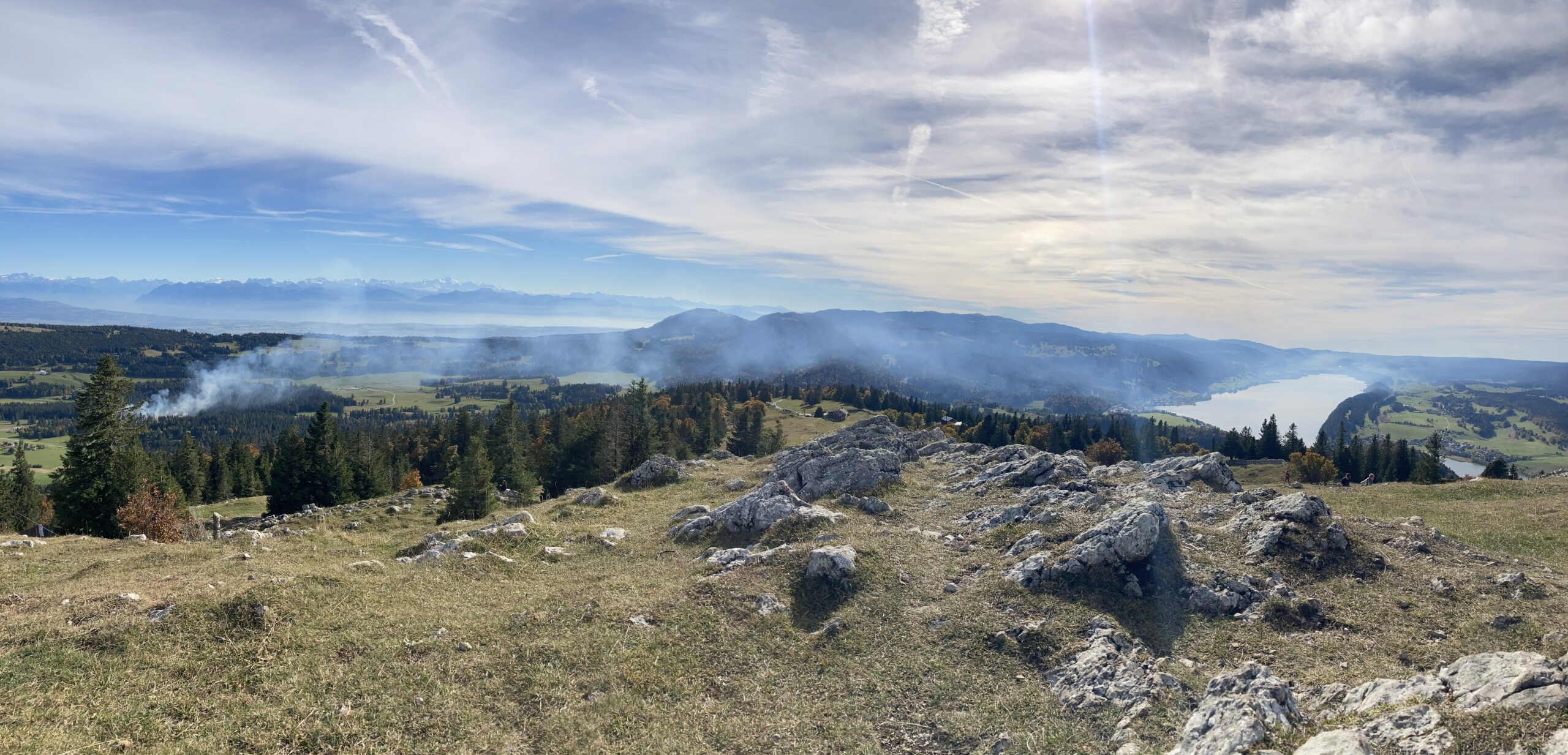WHO air quality standard – Switzerland is way above it
Only seven countries meet the WHO’s air quality standard and Switzerland is not one of them
According to IQAir, an air quality organisation based in Switzerland which draws data from more than 30,000 worldwide monitoring systems, only 7 of the 134 countries and regions it surveys meet the World Health Organization’s (WHO) guideline limit for Particulate Matter 2.5 (PM2.5).
The seven countries quite literally in the clear are: Australia, Estonia, Finland, Grenada, Iceland, Mauritius and New Zealand.
Not only did Switzerland not make the list but, according to IQAir, the country’s average PM2.5 concentration in 2023 was 1.8 times higher than the WHO’s annual air quality guideline value.

Just to remind you, PM2.5 consists of specks of soot smaller than the width of a human hair which are emitted when burning solid and liquid fuels, mostly through power generation, domestic heating and motor traffic (it can also form in the air from chemical reactions between other pollutants). When inhaled these particles can cause numerous health problems and deaths. Two separate studies conducted in the USA and involving a total of 110 million adults found that there is no safe limit for PM2.5 and that even small amounts of exposure cause widespread harm to people’s hearts and lungs.
IQAir estimates that air pollution costs the lives of 7 million people each year across the world.
While the world’s air is generally much cleaner than it used to be, things are going backwards once more and even wealthy, developed countries shouldn’t become complacent. Most European countries fall short of the WHO’s deadline of five micrograms per cubic meter which, let us not forget, is two times less than the Swiss government’s recommended level. And can you guess which developed country came bottom in terms of air quality? Canada! Renowned for its clean air, it recorded the worst pollution levels in the western world in 2023 thanks to its record wildfires that spewed toxic plumes as far as Portugal and Spain.
Canada’s fires were accidental, but we are choosing to burn our forests in our fireplaces and district heating systems!
The last word must go to IQAir’s North America chief executive, Glory Dolphin, who warned that: “Unfortunately things have gone backwards. The science is pretty clear about the impacts of air pollution and yet we are so accustomed to having a background level of pollution that’s too high to be healthy. We are not making adjustments fast enough.”
It is time to speak up and to stop using caveman technology to heat our buildings and businesses!
March 2024
